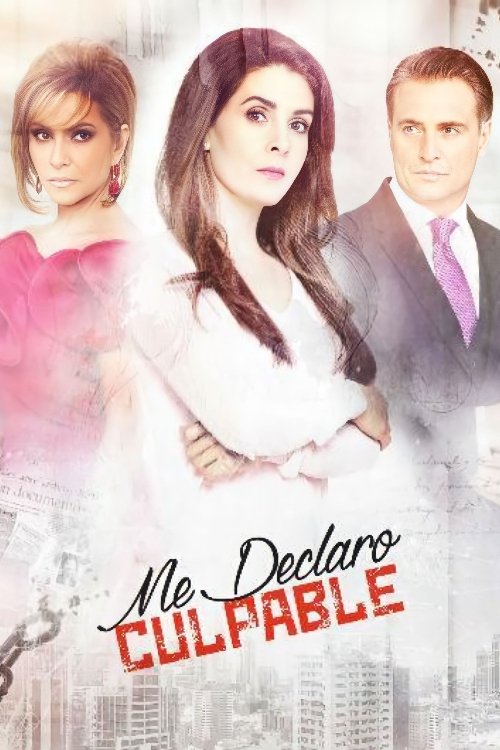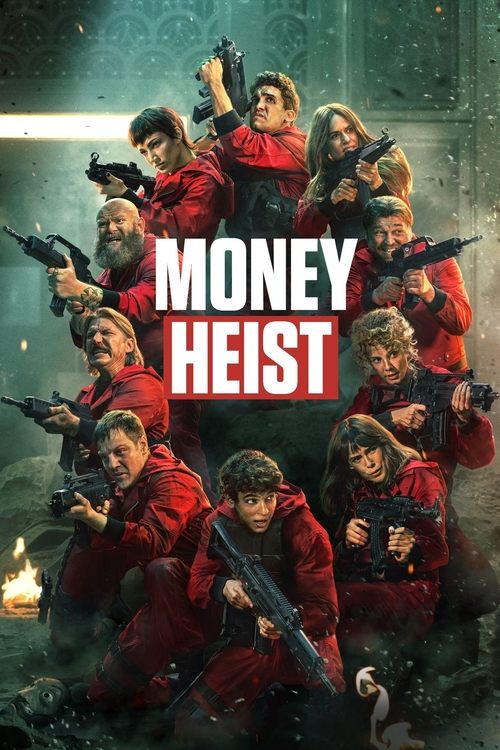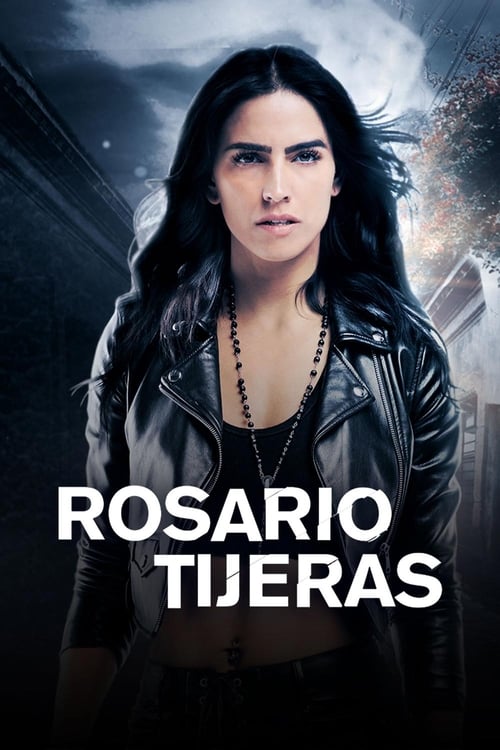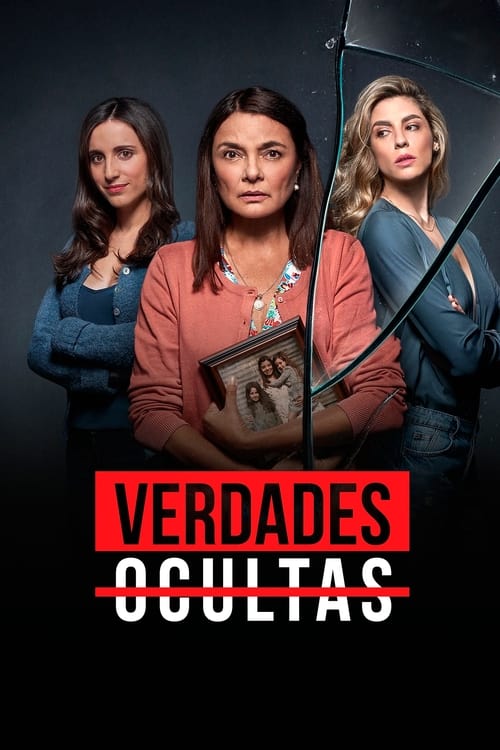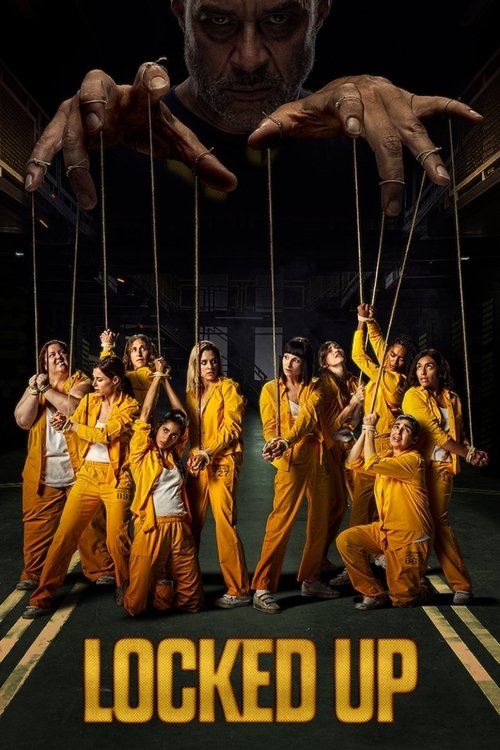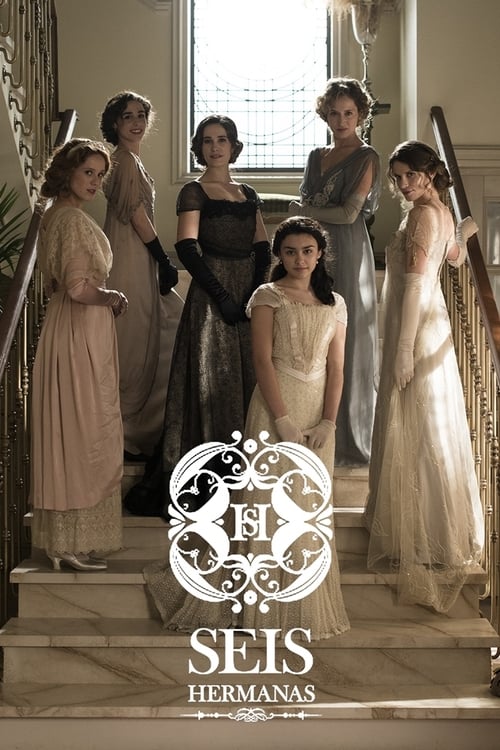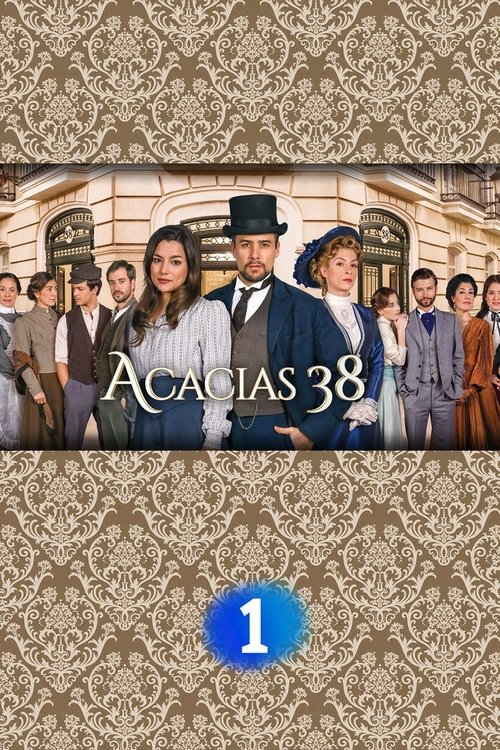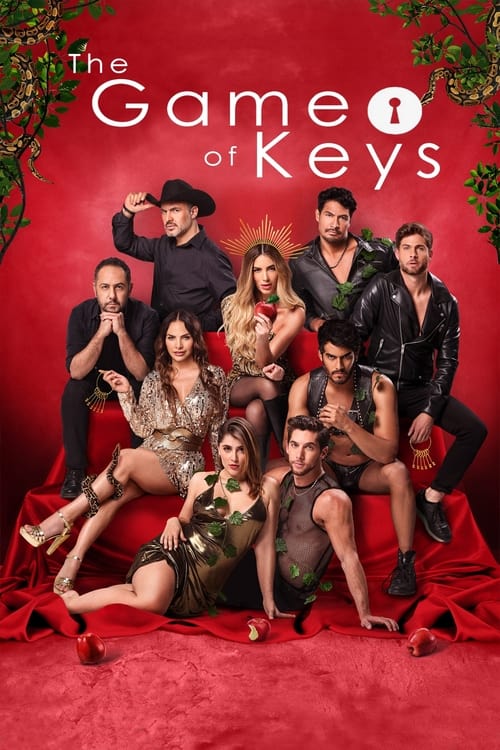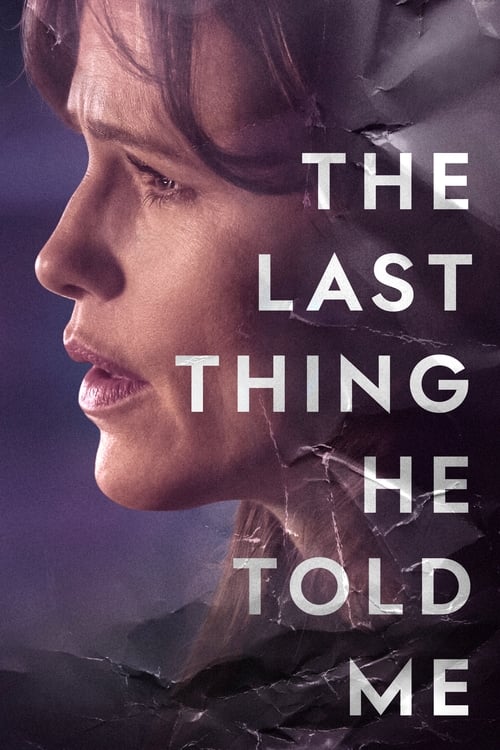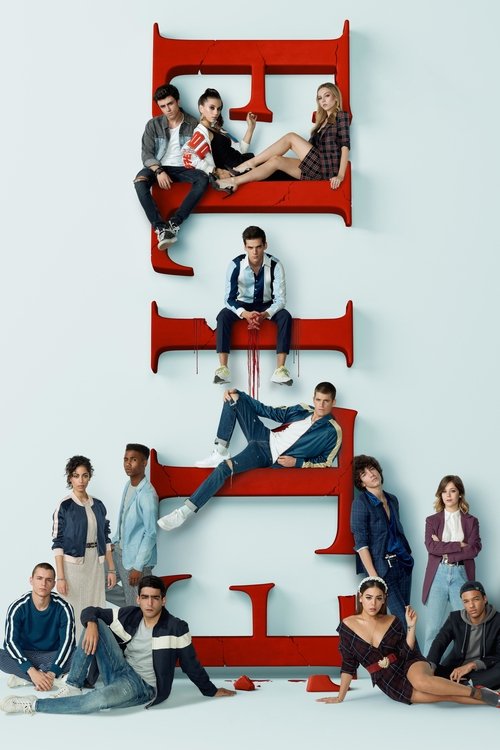
Ask Your Own Question
What is the plot?
In the opening scenes of "Me declaro culpable," we are introduced to the protagonist, a young woman named Valeria, who is living a seemingly normal life. She works at a law firm and is engaged to a charming but somewhat irresponsible man named Diego. Valeria's life takes a dramatic turn when she receives a phone call from her estranged father, who is in prison. He reveals that he has been wrongfully convicted of a crime he did not commit and pleads for her help in proving his innocence. This revelation shakes Valeria to her core, as she has always had a complicated relationship with her father.
Determined to uncover the truth, Valeria begins to investigate her father's case. She visits the prison and confronts him about the details of his conviction. He insists that he was framed by a powerful drug lord named El Chacal, who has connections to corrupt officials. Valeria's emotional turmoil is palpable as she grapples with her father's past and the impact it has had on her life. She decides to take on the challenge of clearing his name, despite the risks involved.
As Valeria delves deeper into the investigation, she encounters various obstacles. She meets with her father's former lawyer, who reveals that crucial evidence was overlooked during the trial. This lawyer, however, is reluctant to take on the case again due to fear of retaliation from El Chacal's organization. Valeria's determination only grows stronger, and she resolves to gather the evidence herself. She begins to interview witnesses and collect documents, often putting herself in dangerous situations.
During her investigation, Valeria discovers that Diego has been hiding secrets of his own. She finds out that he has been involved in illegal activities, which complicates her feelings for him. Despite this, she tries to maintain their relationship, believing that they can work through their issues together. However, Diego's involvement in crime becomes a significant point of tension between them, as Valeria's focus shifts entirely to her father's case.
As Valeria continues her quest for justice, she faces increasing threats from El Chacal's men. One night, while she is out gathering information, she is ambushed by thugs sent to intimidate her. A tense confrontation ensues, where Valeria narrowly escapes, showcasing her resilience and determination. This incident solidifies her resolve to bring her father's case to light, as she realizes the lengths to which she must go to uncover the truth.
Valeria eventually uncovers a key piece of evidence that could exonerate her father: a video recording that shows him being framed during the crime. However, obtaining this evidence proves to be dangerous, as El Chacal's men are hot on her trail. In a gripping sequence, Valeria orchestrates a plan to retrieve the video from a corrupt official's office. She sneaks in under the cover of night, using her wits to evade security. The tension builds as she races against time, knowing that if she is caught, her life could be in jeopardy.
With the evidence in hand, Valeria prepares to present her findings to the authorities. However, she faces a moral dilemma when she learns that Diego has been arrested for his own criminal activities. Torn between her love for him and her commitment to her father's case, Valeria must make a difficult choice. Ultimately, she decides to prioritize her father's innocence, believing that it is the right thing to do.
In a climactic courtroom scene, Valeria presents the evidence she has gathered, revealing the truth about her father's wrongful conviction. The tension in the courtroom is palpable as she confronts the corrupt officials and El Chacal's influence. The judge and jury are visibly moved by her passionate plea for justice. As the truth unfolds, the courtroom erupts in chaos, with El Chacal's men attempting to silence Valeria. A dramatic confrontation ensues, leading to a standoff that tests Valeria's courage and resolve.
In the aftermath of the trial, Valeria's father is exonerated, and the truth about El Chacal's criminal empire begins to unravel. Valeria's relationship with Diego, however, remains strained. She realizes that while she has fought for her father's freedom, she must also confront the reality of her own life choices. The series concludes with Valeria standing strong, having reclaimed her identity and purpose, ready to face whatever challenges lie ahead.
What is the ending?
In the ending of "Me declaro culpable," the main character, a woman named Ana, confronts the consequences of her actions and the impact they have had on her life and the lives of those around her. The story culminates in a courtroom scene where Ana faces the judgment of society and her own internal struggles. Ultimately, she accepts her culpability and seeks redemption, leading to a bittersweet resolution for her and the other characters involved.
As the final act unfolds, the tension in the courtroom is palpable. The scene opens with Ana sitting at the defendant's table, her face a mixture of fear and determination. The judge presides over the proceedings, and the atmosphere is thick with anticipation. Ana's lawyer presents her case, arguing for leniency based on her troubled past and the circumstances that led her to this moment. The camera captures Ana's internal conflict as she reflects on her choices, her eyes darting between the judge and the faces of those she has hurt.
The prosecutor stands, delivering a passionate argument about justice and accountability. The words resonate with Ana, and she feels the weight of her actions pressing down on her. Flashbacks intersperse the courtroom scenes, showing pivotal moments in Ana's life that led her to this point--her struggles with addiction, her relationships, and the choices that spiraled out of control. Each flashback is a reminder of her pain and the pain she has caused others.
As the jury deliberates, Ana's mind races. She thinks of her family, her friends, and the life she once dreamed of. The scene shifts to her mother, who sits in the audience, tears streaming down her face. Ana's heart aches as she realizes the depth of her mother's disappointment and love. The emotional stakes are high, and the camera lingers on Ana's face, capturing her vulnerability.
When the jury returns with a verdict, the courtroom holds its breath. The judge reads the decision, and Ana's fate hangs in the balance. The verdict is guilty, but the judge offers a sentence that reflects both punishment and a chance for rehabilitation. Ana's shoulders slump, but there is a flicker of hope in her eyes. She understands that this is not the end but a new beginning.
In the final scenes, Ana is seen in a rehabilitation center, surrounded by others who share similar struggles. The atmosphere is one of camaraderie and support. She begins to rebuild her life, attending group therapy sessions and confronting her demons. The camera captures her moments of vulnerability and strength as she learns to forgive herself and seek forgiveness from those she has wronged.
The story concludes with Ana writing a letter to her mother, expressing her remorse and her desire to make amends. The letter symbolizes her commitment to change and her journey toward redemption. The final shot is of Ana looking out a window, a mixture of hope and uncertainty in her eyes, as she takes her first steps toward a new life. The screen fades to black, leaving the audience with a sense of resolution and the understanding that while the road ahead is challenging, it is also filled with possibilities for growth and healing.
Is there a post-credit scene?
In the 2017 TV show "Me declaro culpable," there is no post-credit scene. The series concludes its narrative without any additional scenes after the credits roll. The focus remains on the resolution of the main plot and character arcs, leaving viewers with a sense of closure regarding the storylines presented throughout the episodes. The final moments encapsulate the emotional journeys of the characters, emphasizing themes of redemption, justice, and personal growth, without extending into a post-credit sequence.
What motivates the main character, Javier, to take the path of crime?
Javier is driven by a desperate need to provide for his family after facing financial hardships. His internal conflict is palpable as he struggles between his moral compass and the allure of quick money, showcasing his vulnerability and the pressure of societal expectations.
How does the relationship between Javier and his wife evolve throughout the series?
Initially, Javier's wife, Ana, is supportive and trusting, but as Javier becomes more entangled in crime, her feelings shift to suspicion and fear. Their relationship is marked by emotional turmoil, with Ana grappling with feelings of betrayal and helplessness as she witnesses Javier's transformation.
What role does the character of the lawyer play in Javier's journey?
The lawyer, who initially appears as a beacon of hope for Javier, becomes a complex figure as he navigates the legal system. His motivations are revealed to be self-serving at times, leading to a tense dynamic where Javier must question whether he can truly trust him.
How does the series depict the impact of crime on Javier's family?
The series poignantly illustrates the ripple effects of Javier's choices on his family, showcasing scenes of emotional distress, fear, and the strain on familial bonds. The children are particularly affected, embodying the innocence lost as they grapple with their father's decisions.
What are the key turning points in Javier's character development throughout the series?
Key turning points include his initial decision to commit a crime out of desperation, moments of doubt where he contemplates turning back, and ultimately, the consequences of his actions that lead to a profound transformation in his character, revealing layers of guilt and remorse.
Is this family friendly?
"Me declaro culpable," produced in 2017, is a drama that delves into themes of crime, justice, and personal redemption. While it offers a compelling narrative, it does contain elements that may not be suitable for children or sensitive viewers.
Potentially objectionable or upsetting aspects include:
-
Violence and Crime: The show features scenes depicting criminal activities, which may include confrontations, threats, and physical altercations that could be distressing.
-
Emotional Turmoil: Characters experience significant emotional struggles, including betrayal, guilt, and despair, which may resonate deeply and evoke strong feelings.
-
Mature Themes: The narrative explores complex issues such as morality, justice, and the consequences of one's actions, which may be challenging for younger audiences to fully grasp.
-
Family Conflict: There are intense family dynamics and conflicts that can be emotionally charged, showcasing the impact of crime on familial relationships.
-
Legal and Ethical Dilemmas: The portrayal of the legal system and ethical questions surrounding guilt and innocence may be heavy and thought-provoking, potentially leading to discomfort.
These elements contribute to a narrative that, while rich in storytelling, may not be appropriate for all viewers, particularly children or those sensitive to such themes.

